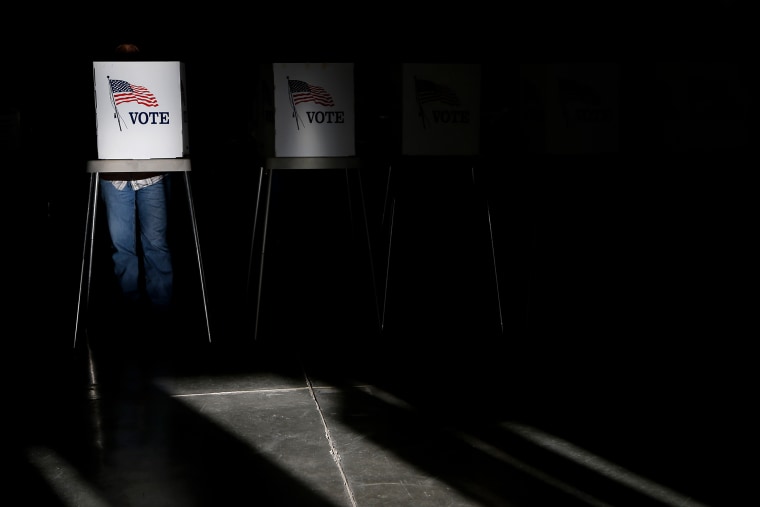After this weekend's gathering in Selma, Alabama, where former President George W. Bush stood and applauded a call for Congress to restore the Voting Rights Act with a bipartisan bill, it was
hard not to wonder when the Republican majority would finally agree to tackle the issue.
According to Senate Majority Whip John Cornyn (R-Texas), the answer appears to be
never.
Cornyn said that the push to fix the so-called "pre-clearance" provision, which was struck down by the Supreme Court in 2013, is an effort to "drive divisions and create phony narratives." Cornyn, who is responsible for scheduling floor votes, said he does not believe Congress should take up legislation to amend the act. He is the first top GOP Congressional leader to publicly say so.
When Yahoo News reminded the Republican leader about "places where people are having difficulty voting," Cornyn replied, "I think Eric Holder and this administration have trumped up and created an issue where there really isn't one."
The Supreme Court's conservative majority ruled two years ago that it's up to Congress to fix the VRA formula. But when Yahoo News asked Cornyn, "So you don't think that Congress needs to fix the formula?" the Texas Republican replied, simply, "
No."
Yesterday, Sen. Richard Shelby (R-Ala.), who did not attend this weekend's event in his own home state, said he
hasn't followed the issue of voting rights at all. "I'm not on the Judiciary Committee. I don't follow that every day," he said this week.
Asked about the Supreme Court's ruling, Shelby added, "I don't know what the court did. I know what they did -- they struck down something."
Sen. Chris Coons (D-Del.) was in Selma over the weekend and
literally walked the streets "with a copy of draft Voting Rights Act legislation in his pocket, trying to win support from his GOP colleagues to restore the landmark law." His search isn't going well.
Sen. Tim Scott (R-S.C.), meanwhile, is reluctant to sign on as a co-sponsor of the Voting Rights Amendment Act, though the
Huffington Post reported this week that he seems to like the bill far more than he realizes.
Scott, one of two African-American senators, wouldn't endorse the bill in his Sunday interview. Instead, he praised the Supreme Court for striking down Section 4 because he said the law unfairly punished Southern states for voter discrimination that took place decades ago. The key, he said, is to apply the law to the parts of the country currently engaging in voter disenfranchisement. "What I would support is, take a second view at the Voting Rights Act, and see how we can apply it universally to all Americans, every place, and let's judge people and states based on their performance today and not 40 or 50 years ago," Scott said. Southern states have made progress protecting voters' rights, Scott continued, so "we should make sure that the formulas that are used do not punish the history of the state but should represent the current state of affairs." In other words, precisely what the proposed Voting Rights Act legislation would do.
In 2006, when the Senate reauthorized the Voting Rights Act, the law enjoyed
unanimous support from Republican senators. Nine years later, a proposal to restore the law, at least for now, faces unanimous
opposition from Republican senators.
